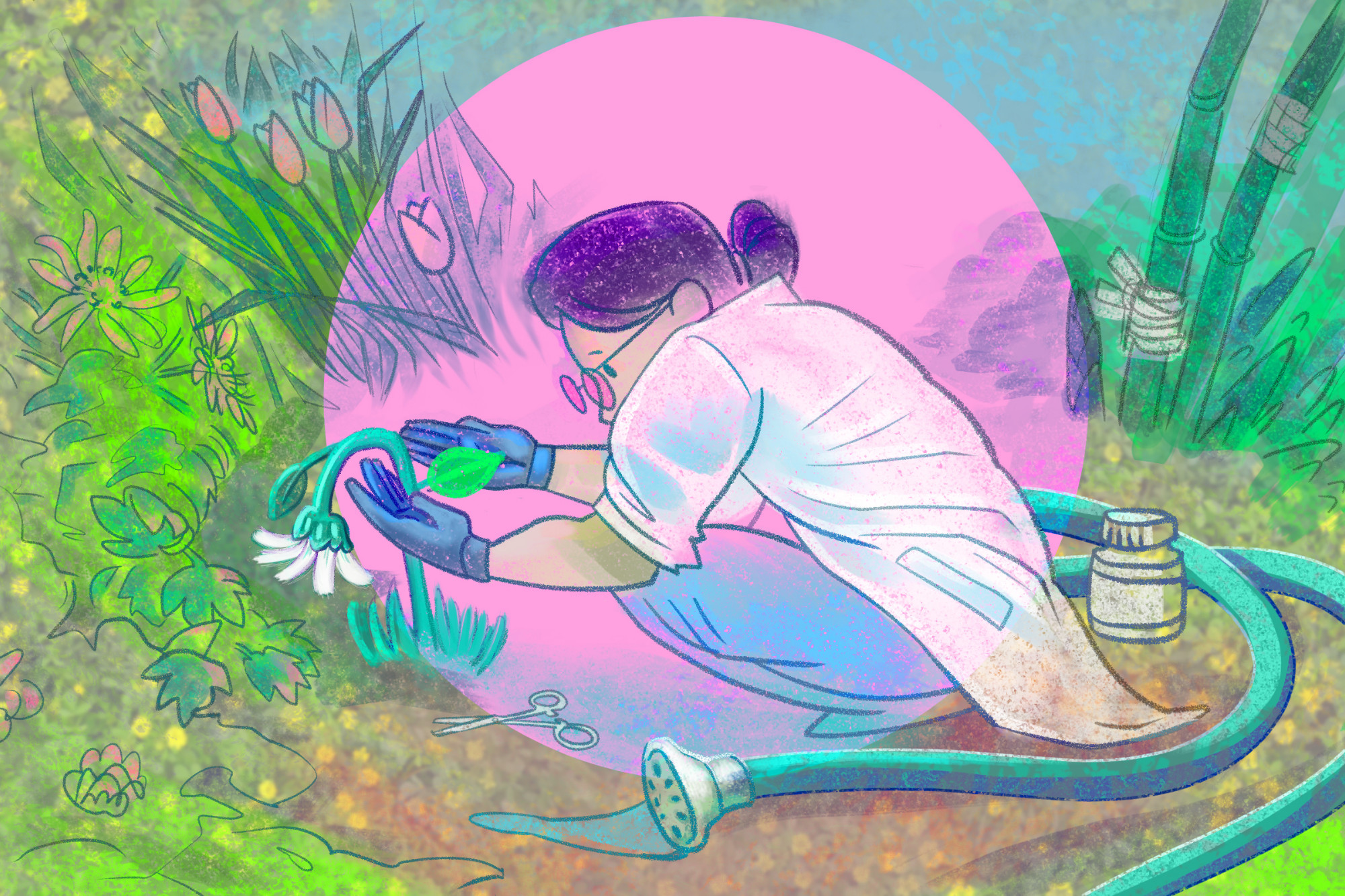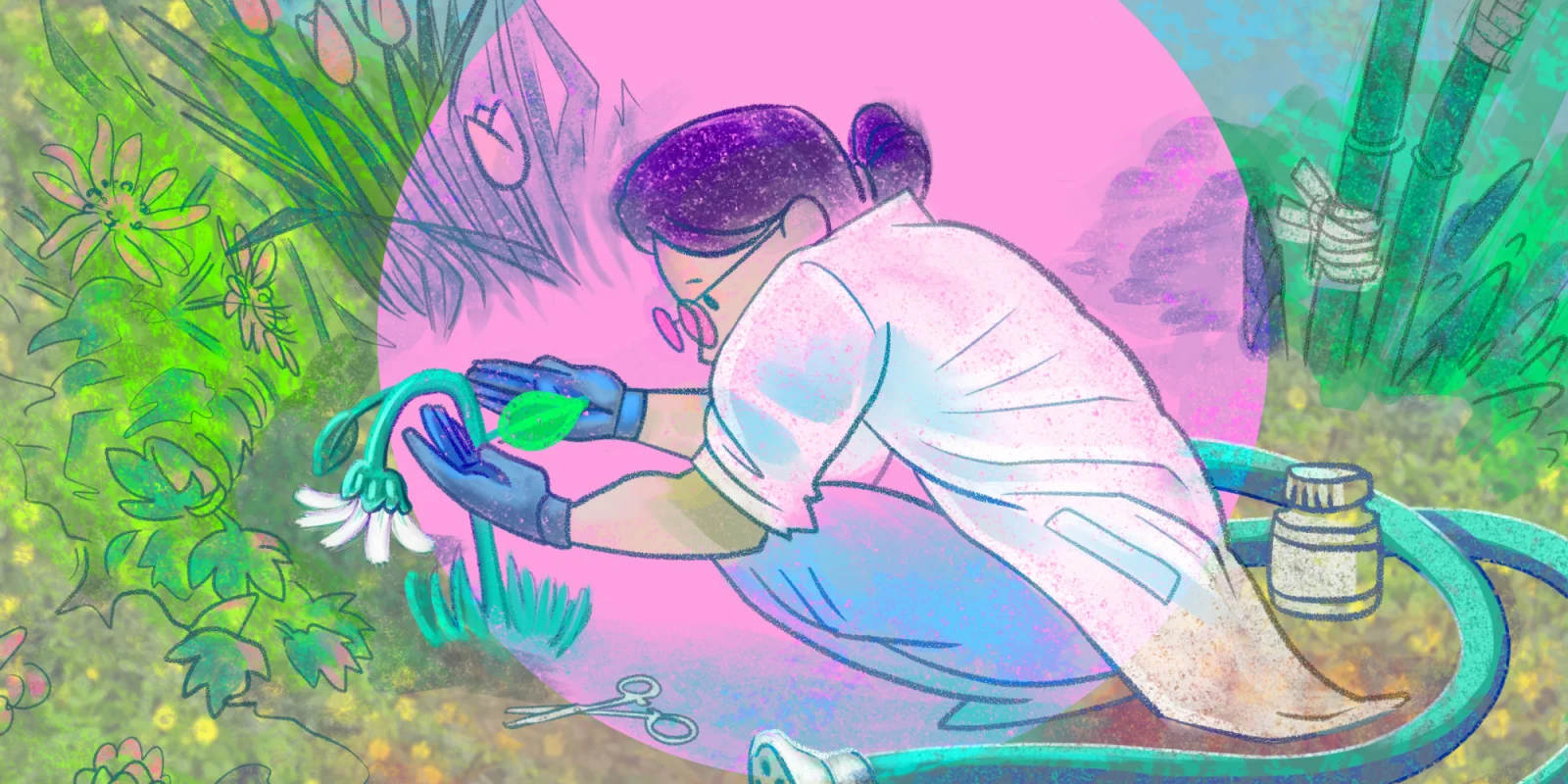
It sucks to be a patient. To have something physically wrong with you, to have to rely on medical professionals, to feel that you are no longer in control of how your life is going. To some degree, every patient is suffering a loss – a loss of function, youth, good health. Getting sick is a downer. From the patient’s perspective, getting a diagnosis can add up to an intensely stressful and negative experience.
How bad can this be? Research has shown that when you give a person a new diagnosis of high blood pressure, the person’s perception of how much time it will take to recover from an unrelated common cold actually increases. Therefore, bestowing a new diagnosis may have harmful psychological consequences. Most physicians may not be aware that giving a diagnosis itself may cause harm. After all, doctors are just doing their jobs.
However, as physicians, we wield much more influence than we think. People with a new problem are usually entirely ignorant of just what this disease means for them. Your patients hang on to every last word you say. And not just every word, but your body language, how concerned, uncomfortable, upset, confident, certain you may seem. The physician is in a powerful position to influence how the patient perceives the situation.
Patients don’t have to feel dragged down by their health. Part of our role as health care providers is to help our patients get back up from that dark place where illness has taken them. What do patients really want? They want to know that they will be able to get back on the path of their normal life and keep going. This may not always be possible, but in almost every instance, things are not always as bad as people perceive them to be. What can doctors do? In every doctor-patient setting, it is just as important to tell patients about the good things as it is to tell them about the bad.
We have all had some sort of personal experience as a patient. I had the experience of developing a tooth abscess, which required extraction. I wondered, Why is this happening to me? My dentist, the endodontist, and the oral surgeon had all looked puzzled, shrugged, and had no good answers. Two years later, the same thing happened to another tooth. Although I knew my situation was manageable, I still thought: What is wrong with my health, my teeth, my body? When should I expect the rest of my teeth to fall out? “You probably grind your teeth" was the closest explanation I got. In the waiting room at the oral surgeon’s office, it didn’t escape me that most of the people were close to double my age.
While I sat in the chair during this second time around, the mostly silent oral surgeon happened to point up to my CT scan showing the outline of the extracted tooth, and casually mentioned that I had a “really good strong jaw bone.”
Who, me? Me — the lady with her teeth falling out prematurely — has a good strong jaw bone? I cannot tell you how happy I felt to have this small surge of hope flung my way. And the doctor might not have mentioned it at all.
In my own retina practice, I saw a woman in her 70s for a follow-up check after I had lasered her torn retina. Her own mother had had advanced age-related macular degeneration and was severely visually disabled at the end of her life. I looked down at her optical coherence tomography scan of the macula and noted that it was pristine, not a trace of any tiny drusen that we usually see with any degree of macular degeneration. I leaned over to her and showed her the scan and said, "You know, you will probably never get macular degeneration in your life."
She leaned back, her eyes wide, and exclaimed, "This is the best news I have heard, ever!" I could only imagine how this woman had witnessed her own mother gradually going blind from a disease, which in the past had been incurable. Until this moment she had lived with anxiety and uncertainty due to her perceived likelihood that she herself would also succumb to blindness.
Being optimistic, focusing on things that are positive (and the positive things are always there) gives an individual hope. Embracing hope and optimism helps strengthen an individual’s resolve to heal and recover. The first step of healing is really as simple as believing that better health can be achieved: holding on to the belief that things will be OK, that the treatment will work, that they will get through this. A positive and optimistic health care provider who makes the conscious effort to focus on the bright side of every situation will alleviate the anxiety of illness and allow the individual to recover and withstand treatments with greater ease. It is critical for every clinician to practice demonstrating their concern, to practice listening, to use eye-contact, and to focus on the positive. Everything can be viewed as half full or half empty. Why not be optimistic about what life has offered?
Doctors have the ability to examine so many parts of a patient. However, a normal examination without any pathology might be rather unexciting for the doctor: There is nothing to treat here. I do not play a role here, because I cannot be helpful. Physicians must remember that the person they are treating very much cares about how healthy things are. As people and patients grow older, we take good health less for granted than during youth.
It only takes a few seconds to say, "Your blood pressure is excellent today." Or, after doing a routine procedure, one might try saying something that is obvious: "Everything went great. All the medicine is in now." It may be obvious to the doctor that all went perfectly fine, but people on the receiving end need to hear that positive confirmation, and feel a small sense of relief and even joy that all has gone well for them.
Not only is optimism important for the patient, but also a positive attitude for the physician will free up one’s creative juices to try something unconventional, and to think outside the box in the setting of optimism. You might think that it is hard to be hopeful for a patient with metastatic cancer contemplating options for enrollment in a clinical trial. Physicians may be able to predict how a patient might do, but rarely can we be completely certain of anyone’s prognosis. Why not be hopeful and focus on the possibility of a great result? Our minds as physicians will be more open and flexible to ideas and we may be more creative when we look after patients with a hopeful and optimistic approach.
Dr. Tara McCannel is a vitreoretinal surgeon and ocular oncologist. She likes teaching, running with other moms, and family getaways. Dr. McCannel is a 2019-2020 Doximity Fellow.
Illustration by April Brust







